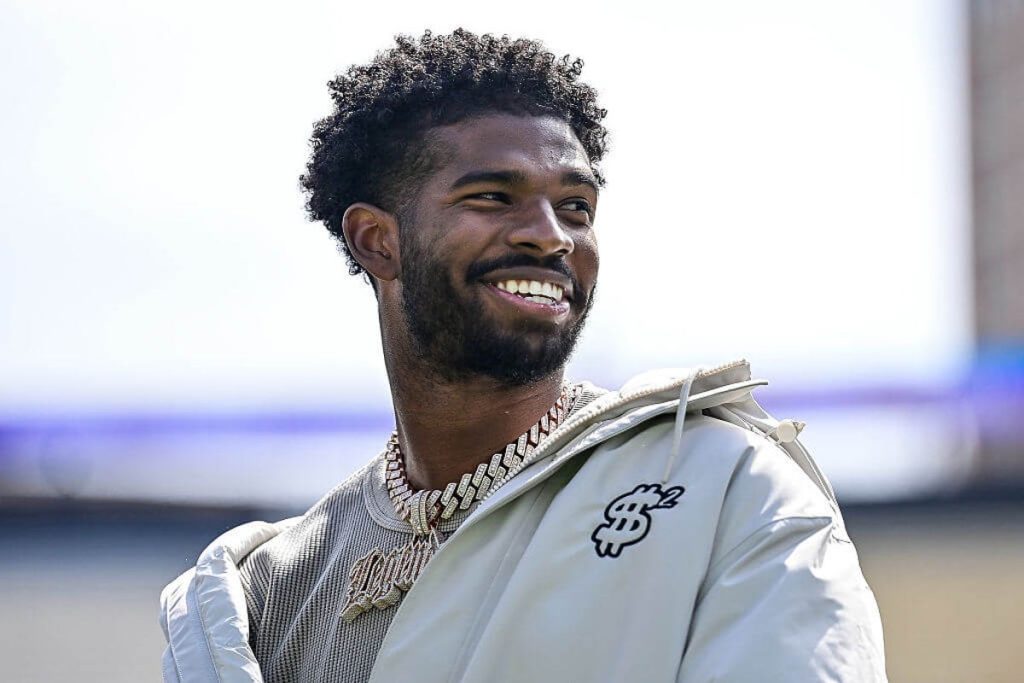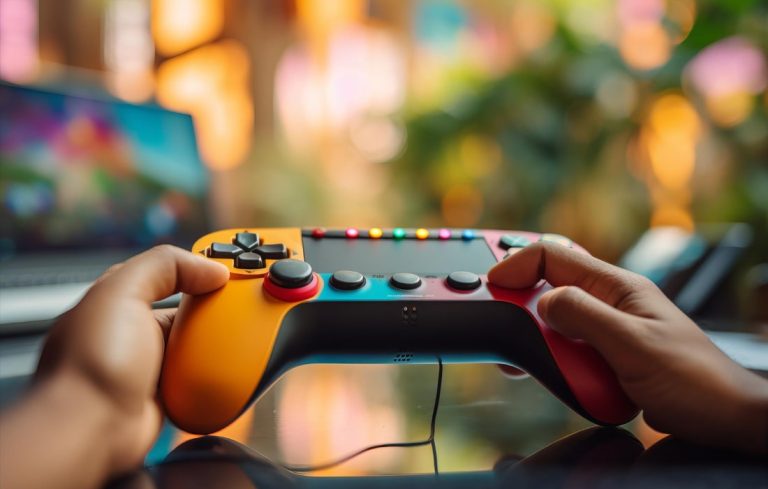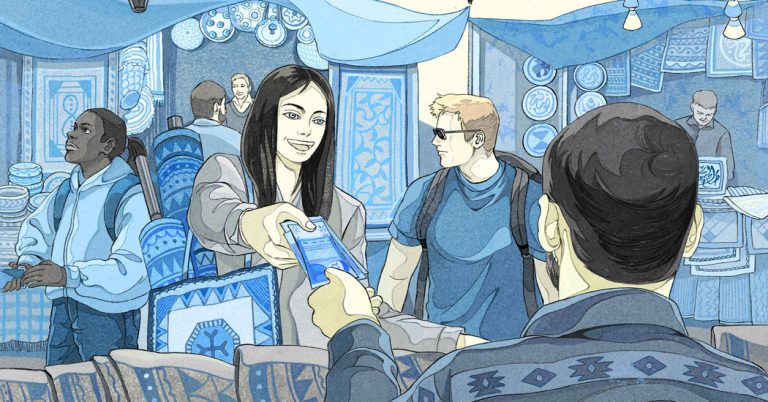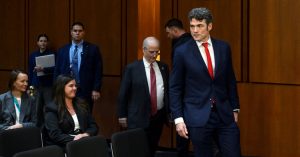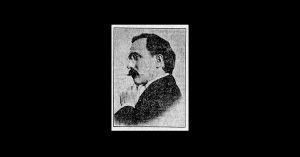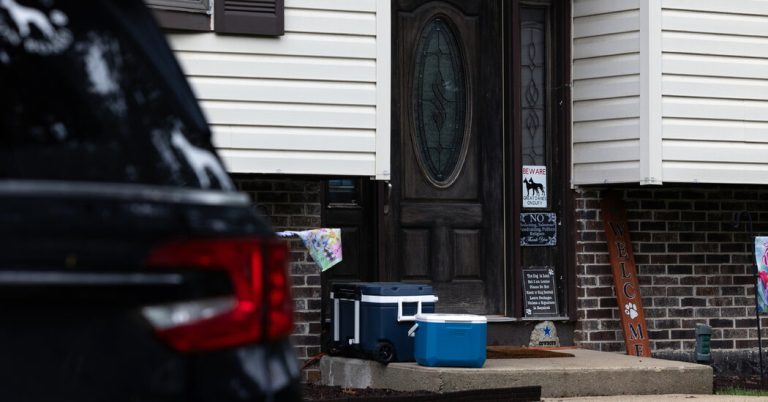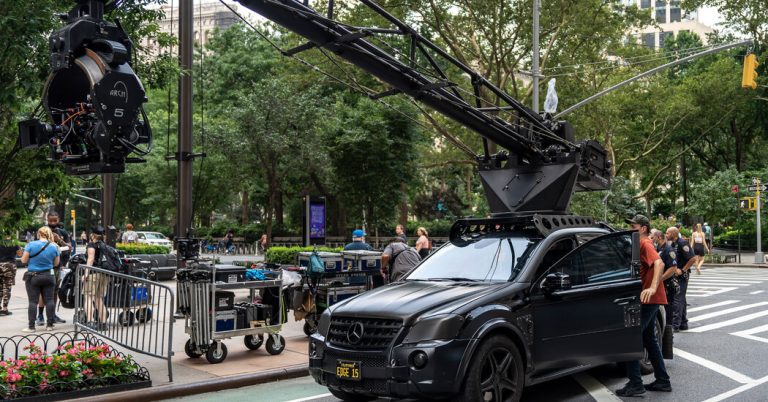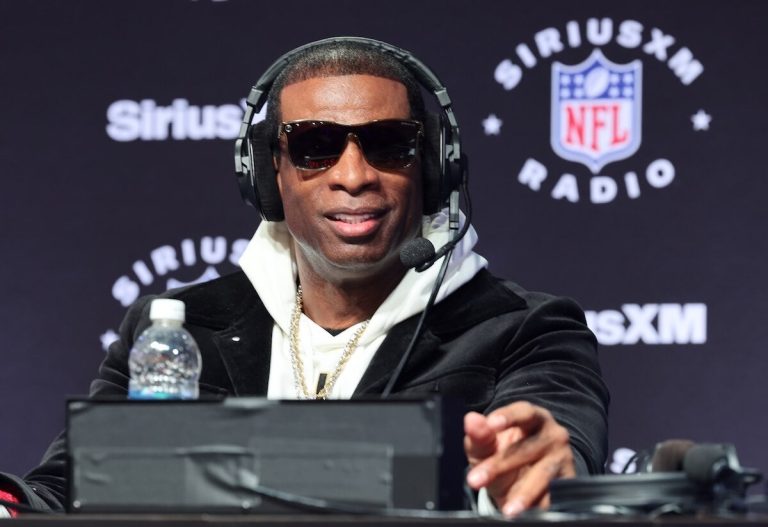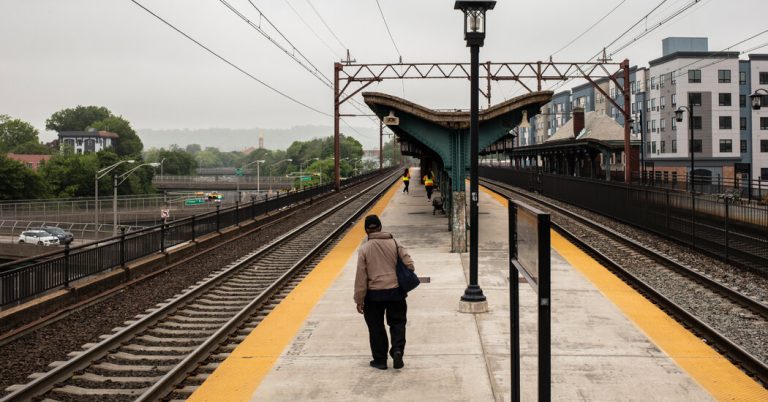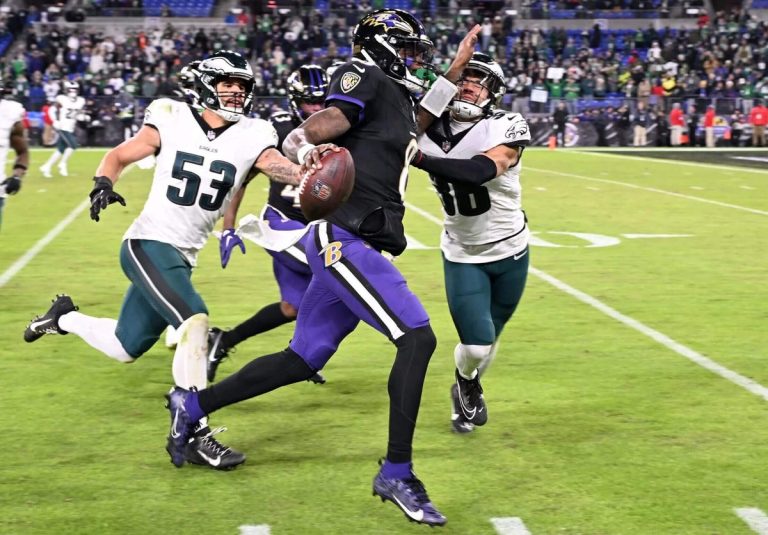As the third round of the NFL Draft was concluding late Friday night and Cleveland Browns coach Kevin Stefanski and general manager Andrew Berry were explaining why they selected Oregon quarterback Dillon Gabriel, I texted an assistant coach from another NFL team who is familiar with the Browns and how they operate.
I wondered what he thought about their choice of Gabriel over Shedeur Sanders.
“The Browns need another distraction like they need a hole in the head,” he said.
Well, prepare the body and charge the drill.
Say what you want about the Browns, but they are not scared off by big personalities and potential distractions — at least their owner isn’t. They haven’t even finished paying off their last sports car, which is wrapped around a tree somewhere in the forest, and they just rushed out to make the down payment on another one.
Sanders is coming to Cleveland whether Berry and Stefanski like it or not. Judging by their reactions, which were captured in the Browns’ draft room, you decide if this is the look of two men who believe they just found their franchise quarterback … or two victims held hostage by an overzealous owner.
When Berry was asked about owner Jimmy Haslam’s involvement with the pick, his response was, “Jimmy lets us do our jobs.”
Sanders’ fall has been well documented. There was a time he was believed to be under consideration by the Browns with the second pick. Instead, they got him in the fifth round and 144th overall. Under that lens, it’s hard to argue the value of the pick. It’s everything else that’s curious.
This is an organization that has routinely run into bonfires in the past: Johnny Manziel, Odell Beckham Jr., Baker Mayfield and, most recently, Deshaun Watson. Each came with a big personality and varying degrees of talent. Each left the Browns with third-degree burns. The building is still in bandages from Watson.
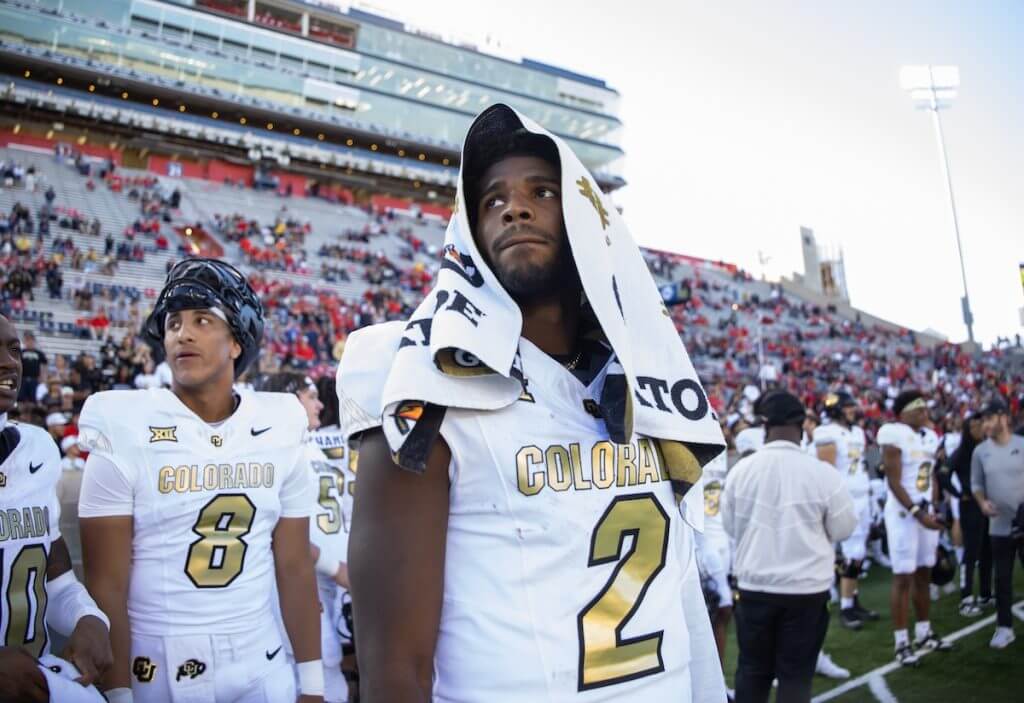
Sanders at least comes with the lowest risk and lowest cost of all of them. If it doesn’t work, they could theoretically cut him before the start of the season and move on with their lives. If it does work, they might have just fallen into a franchise quarterback in a round that never really produces talent at that position.
Here is the list of insurance salesmen taken in the fifth round since 2010: John Skelton, Jonathan Crompton, Ricky Stanzi, T.J. Yates, Nathan Enderle, Aaron Murray, AJ McCarron, Brett Hundley, Kevin Hogan, Nathan Peterman, Mike White, Easton Stick, Clayton Thorson, Jake Fromm, Sam Howell, Clayton Tune, Dorian Thompson-Robinson, Spencer Rattler and Jordan Travis.
Sanders is tough. He’s accurate. Being the son of Deion Sanders, he certainly won’t be shaken by the moment. He has seen and heard it all by this point. How his fall from the first round to the fifth round might affect him remains to be seen.
But knowing how the Browns function, this feels like a pick Haslam forced on the organization. The choice of Gabriel at the end of the third round was a surprise in its own right. He’s undersized, but the Browns like his arm strength, maturity, accuracy and long track record of winning.
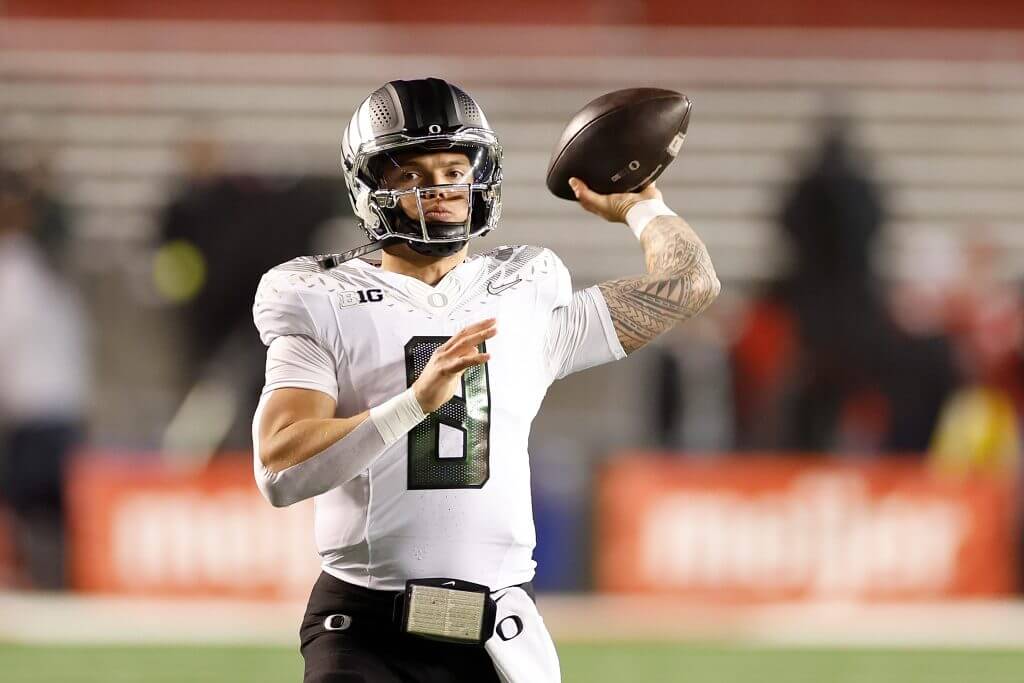
They could’ve perhaps framed Sanders as an organizational pick had they not just selected Gabriel two rounds before. Now, Gabriel feels like a front-office pick and Sanders as the owner’s pick. It certainly wouldn’t be the first time. Haslam’s actions in the past do not earn him the benefit of the doubt.
He forced Manziel on a previous front office, and he wouldn’t take no for an answer from Watson, instead adding zeroes to the check until Watson said yes. Haslam has since taken accountability for the Watson debacle, but it hasn’t seemed to scare him off from running into the fire again.
“It wasn’t necessarily the plan going into the weekend to select two quarterbacks,” Berry said. “But as we talk about, we do believe in best player available. We do believe in positional value. We didn’t necessarily expect him to be available in the fifth round.”
The Browns were having a fairly impressive, responsible draft until things got weird with the Gabriel pick. They traded down with the Jacksonville Jaguars from the second spot to fifth and added a second-rounder this year and a future first as compensation. It was a robbery.
Choosing Gabriel was peculiar only because he likely would’ve been available to them later. No other quarterbacks went off the board between the Browns’ selection of Gabriel at No. 94 and Sanders at No. 144. Kyle McCord, Will Howard and Riley Leonard were the next quarterbacks to go, and they all went in the sixth round.
A Browns franchise that hasn’t been able to find a quarterback in 25 years is about to have five under contract: Watson, Gabriel, Sanders, Kenny Pickett and Joe Flacco.
Watson is out with two Achilles tears and will never take another snap in a Browns uniform, but he’s still under contract for two more years and counts for $170 million on future caps. They traded away a fifth-round pick to acquire Pickett and two weeks ago gave Flacco $4 million guaranteed.
They won’t all fit on the roster. Perhaps they can trade Pickett or Flacco, a 40-year-old fan favorite, near the end of the preseason if they choose to carry both rookies. Stefanski has insisted this summer will be a good, old-fashioned quarterback competition. I would choose Pickett as the early favorite to win it, but that was before the Sanders pick. The Browns remain undefeated in unpredictability.
This team probably won’t be very good next year, which is why trading down from second to fifth and acquiring a future first-rounder felt so wise. It could be the necessary ammunition to go up and find a quarterback — maybe Arch Manning? — in next year’s draft.
Or perhaps they just solved their gaping hole with a fifth-round gift.
Bill Musgrave, the Browns’ quarterbacks coach, is an old friend and former teammate of Deion Sanders. It’s reasonable to believe Deion trusts Musgrave to tutor his son and not interfere, which seemed to be a concern among NFL teams.
Nevertheless, the Browns have another shiny car, and Jimmy Haslam is holding the gas can.
(Photo: Dustin Bradford / Getty Images for ONIT)
